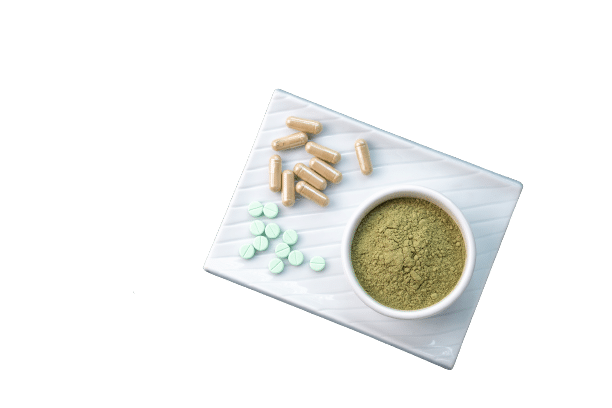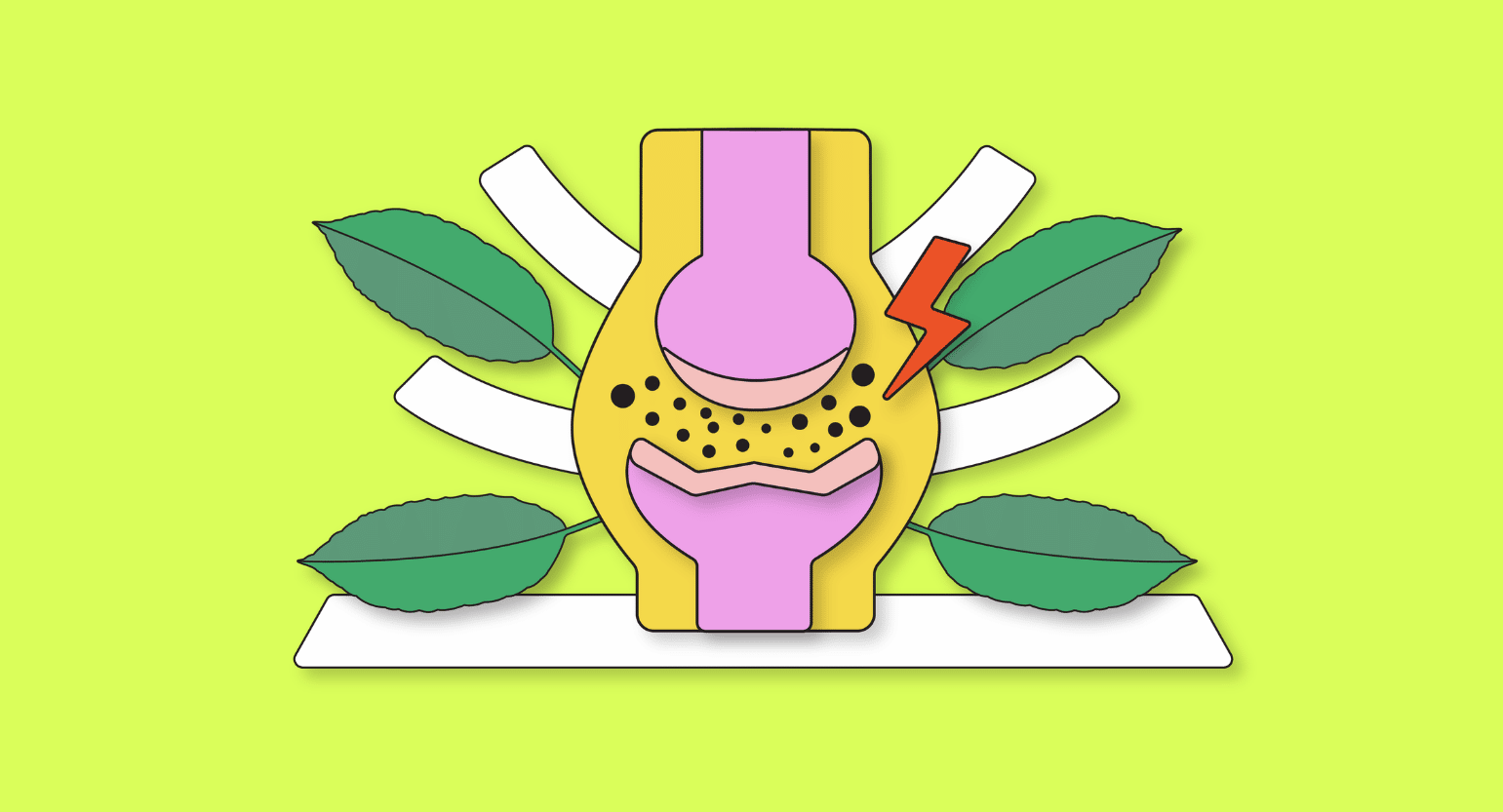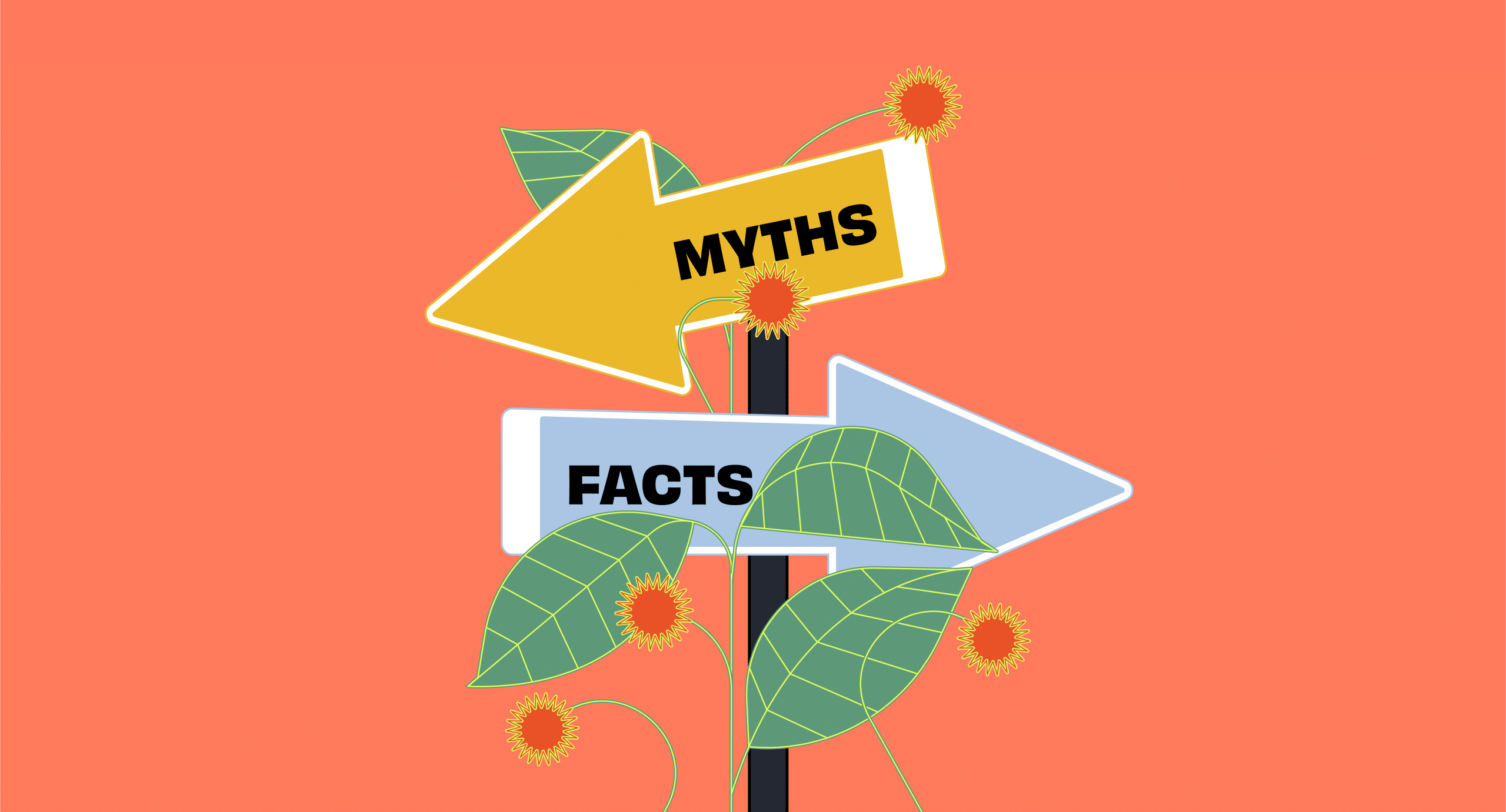Does Kratom Interact With Percocet?
Yes. Kratom has a high chance of interacting negatively with Percocet. Let me explain…
Most drugs we take are metabolized in the liver by an enzyme family known as the cytochrome P450 (CYP450). Percocet uses the CYP3A4 enzyme as its major metabolic pathway [1]. Kratom also requires CYP3A4 for its metabolization [2].
When two drugs that require the same enzymes for their metabolism are taken together, they can compete to bind to such enzymes. The overall result is a slower metabolism of one or both compounds. This `pharmacological interaction is known as metabolic inhibition.
A slower metabolism rate increases the risk of side effects, including an overdose. This is especially prevalent if you take them together frequently.
Other Painkiller Medications that Interact with Kratom
Percocet contains a combination of oxycodone and acetaminophen. In other words, it combines an opioid pain medication with an NSAID analgesic.
This is a dangerous class of drugs. You should be very careful if you decide to mix any of them.
Speak to your doctor about your plans.
Other related analgesics and opioid combos that kratom may interact with include:
- Aspirin (Ascriptin, Aspergum, Entercote)
- Buprenorphine (Cizdol & Brixadi)
- Celecoxib (Celebrex & Onsenal)
- Codeine
- Diamorphine (Heroin)
- Etodolac (Ultradol)
- Fentanyl (Abstral & Actiq)
- Hydrocodone & Paracetamol (Vicodin)
- Hydrocodone (Hysingla ER, Zohydro ER & Hycodan)
- Hydromorphone (Dilaudid)
- Ibuprofen (Motrin, Advil, Nuprin, Caldolor & Neoprofen)
- Ketorolac (Toradol)
- Meloxicam (Mobic)
- Methadone (Methadose & Dolophine)
- Morphine (Kadian & Roxanol)
- Naproxen (Aleve)
- Pethidine (Meperidine & Demerol)
- Tramadol (Ultram, Ryzolt & ConZip)

Is It Safe to Take Kratom With Percocet?
No, it’s not safe to mix Percocet with kratom.
The two substances work together to make each other stronger. Therefore, you’ll face a much higher risk of side effects and/or an overdose.
Talk to your doctor to determine if this combo is right for you.
What is Percocet?
The FDA first approved Percocet in 1999. This combination of oxycodone and acetaminophen treats moderate to severe pain.
In 2009, the FDA recommended that Percocet —along with all other combinations of narcotic analgesics and acetaminophen —should be limited in sales. At the time, there were approximately 400 deaths blamed on Percocet annually.
This medication was linked to a fivefold increase in deaths in Ontario over all other opioids [3].
Percocet Specs:

| Name | Percocet |
| Trade Name | Oxycodone & acetaminophen |
| Classification | Opioid (narcotic) and NSAID |
| CYP Metabolism | CYP3A4 |
| Interaction with Kratom | Agonistic interaction, metabolic inhibition |
| Risk of Interaction | High |
What is Percocet Used For?
Percocet is used for moderate to severe pain. Do not eat grapefruit or drink grapefruit juice when you use this medication.
What Are the Side Effects of Percocet?
Percocet can produce many unpleasant side effects. This is especially notable if you take higher doses.
Common side effects of Percocet may include:
- Constipation
- Difficulty urinating
- Dizziness
- Drowsiness
- Fainting
- Itching/swelling (face/tongue/throat)
- Lightheadedness
- Mental/mood changes
- Nausea
- Rash
- Seizure
- Severe dizziness
- Severe drowsiness/difficulty waking up
- Severe stomach/abdominal pain
- Sleep apnea
- Slow/shallow breathing
- Vomiting

What is Kratom?
Kratom is an evergreen tree member of the coffee family. It hails from Southeast Asia and is found in Thailand, Vietnam, Indonesia, Malaysia, Myanmar, and Papua New Guinea.
Kratom has been used since at least the 19th century. Its primary usage is to combat pain and increase energy, especially among laborers in Southeast Asia. Nowadays, we know kratom has plenty of medical benefits, and its slowly becoming increasingly popular in the West.
What’s Kratom Used For?
Depending on the dosage, kratom can have stimulant, euphoric effects, or relaxing, sedative qualities. Most people use the herb as a traditional medicinal remedy, but it’s also used recreationally worldwide.
Suggested health benefits of kratom include:
- Alleviates chronic pain
- Boosts energy
- Improves mental focus & cognition
- May alleviate symptoms of opioid withdrawal
- May suppresses appetite (weight-loss supportive)
- Reduces anxiety & chronic stress
- Sleep-supportive

What’s The Dose of Kratom?
Anyone newcomer to kratom would be wise to stick with a low dose (around 2 grams). Those with more experience may increase slowly to a higher dose.
Please note the subjective effects of kratom will vary depending on the dosage you take, but also in your individual traits like weight, metabolism rate and age.
General dosage guidelines for kratom include the following:
- Low-Dose Kratom (2–6 grams of dried powder)
- High-Dose Kratom (6–12 grams of dried powder)
Taking more than 12 grams at a time may increase your odds of dealing with side effects and/or an overdose. To avoid this issue, never exceed a 12-gram dose.
What are the Side Effects of Kratom?
Kratom is generally well-tolerated. However, this doesn’t mean it doesn’t have its own set of adverse, unpleasant effects. Be sure to start with a low dose and increase slowly to avoid chances of experiencing kratom’s side effects.
Common side effects of kratom include:
- Anxiety
- Brain fog
- Cognitive impairment
- Constipation
- Diarrhea
- Dizziness
- Headaches
- Heart palpitations
- Lethargy
- Liver damage (with long-term use)
- Nausea
- Sedation
- Vomiting
Another thing to look out for is kratom dependence. If taken constantly, without tolerance breaks, your body might develop an addiction to kratom. Make sure to space your doses properly and never take kratom while pregnant or breastfeeding.

What are the Different Types of Kratom?
Kratom can be found in dozens of different strains. Each of these strains belongs to one of four classes: white, red, green, and yellow.
Here’s a quick run-down of the different kratom strain classes:
- White Vein Kratom — Best for focus, energy, and concentration. The effects are euphoric and energizing.
- Red Vein Kratom — Best for sleep and pain, fast-acting and potent. The effects are numbing and relaxing.
- Green Vein Kratom — Balanced between white and red (sedating and stimulating).
- Yellow Vein Kratom — Made from a combination of white kratom and other strains. Effects cover all ranges of the spectrum (sedating or stimulating).

Key Takeaways: Is it Safe to Mix Kratom & Percocet
Percocet and kratom should never be used together.
Because they have an agonistic interaction, mixing them could cause your risk of side effects and/or an overdose to go up.
If you’re taking Percocet and wish to add kratom into the mix, speak with your doctor first.
Don’t forget that Percocet and kratom have a higher chance of negative interaction if you regularly take these two substances together.
- Löfdal, K. C. S., Andersson, M. L., & Gustafsson, L. L. (2013). Cytochrome P450-mediated changes in oxycodone pharmacokinetics/pharmacodynamics and their clinical implications. Drugs, 73(6), 533-543.
- Kamble, S. H., Sharma, A., King, T. I., León, F., McCurdy, C. R., & Avery, B. A. (2019). Metabolite profiling and identification of enzymes responsible for the metabolism of mitragynine, the major alkaloid of Mitragyna speciosa (kratom). Xenobiotica, 49(11), 1279-1288.
- Dhalla, I. A., Mamdani, M. M., Sivilotti, M. L., Kopp, A., Qureshi, O., & Juurlink, D. N. (2009). Prescribing of opioid analgesics and related mortality before and after the introduction of long-acting oxycodone. Cmaj, 181(12), 891-896.









